January 8 stands as one of history’s most eventful days, witnessing the rise and fall of empires, groundbreaking discoveries, and moments that shaped our modern world across centuries of human achievement.
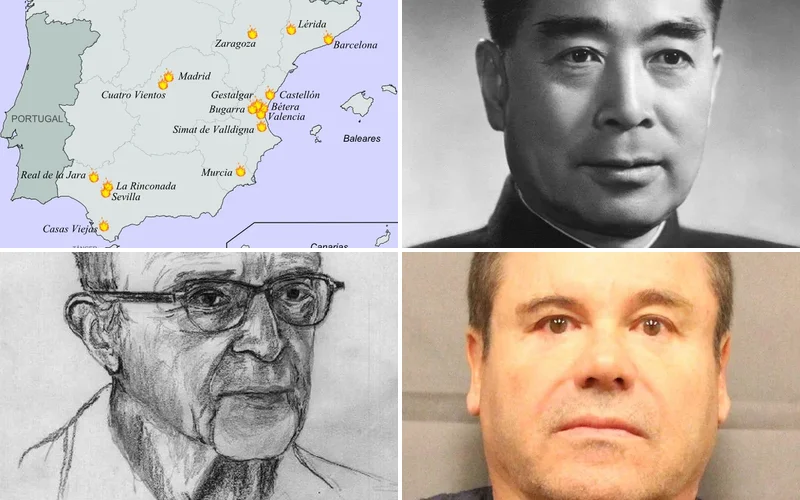
Politics and Government Events on January 8
1918 – U.S. President Woodrow Wilson Announces His “Fourteen Points”
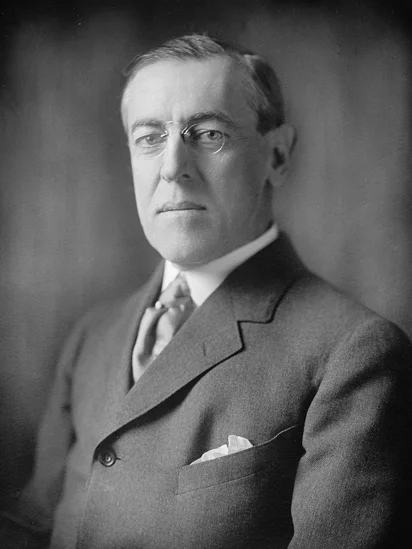
President Woodrow Wilson delivered his historic “Fourteen Points” speech to Congress, outlining his vision for post-war peace. The comprehensive plan addressed territorial disputes, trade relations, and the establishment of international cooperation mechanisms.
Wilson’s ambitious framework called for open diplomacy, freedom of navigation, and the creation of a League of Nations. These principles would profoundly influence the Treaty of Versailles and reshape international relations for decades to come.
1959 – Charles de Gaulle Proclaimed as First President of the French Fifth Republic
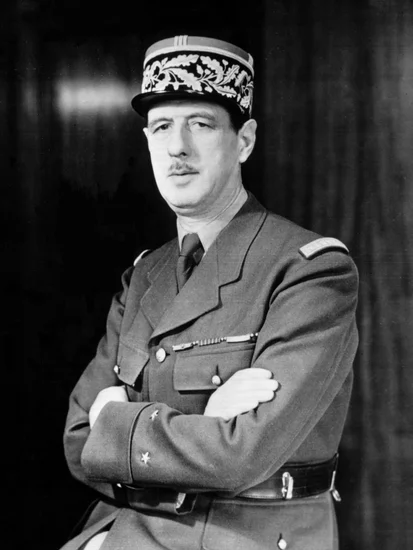
Charles de Gaulle officially assumed the presidency of France’s newly established Fifth Republic, marking a decisive constitutional transformation. The former wartime leader brought unprecedented executive powers to the presidential office.
De Gaulle’s presidency would define modern French politics and establish France as a major European power. His leadership style and constitutional reforms created the framework for contemporary French governance.
1975 – Ella T. Grasso Becomes First Woman Governor in Her Own Right
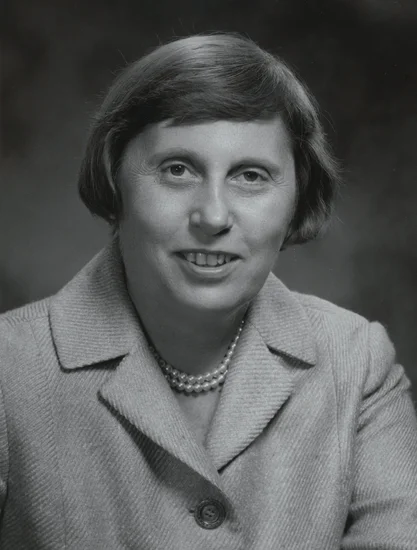
Ella T. Grasso made history by becoming Governor of Connecticut, the first woman to hold a U.S. governorship without succeeding her husband. Her groundbreaking achievement shattered traditional political barriers for women in American politics.
Grasso’s election represented a pivotal moment in women’s political advancement during the 1970s. Her successful campaign demonstrated that female candidates could win major executive offices on their own merits.
2002 – President George W. Bush Signs No Child Left Behind Act
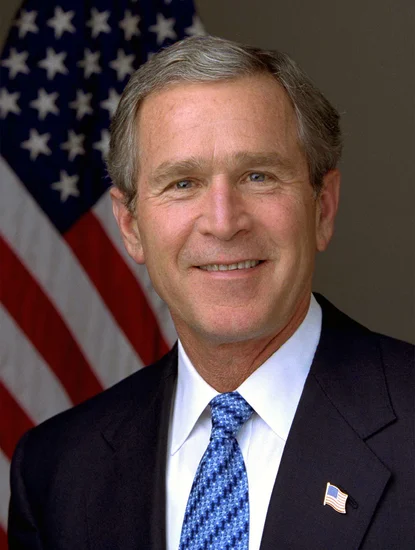
President George W. Bush signed the sweeping No Child Left Behind Act into law, fundamentally transforming American education policy. The bipartisan legislation established unprecedented federal standards for public school accountability and student achievement.
The Act mandated standardized testing across all states and imposed strict penalties for underperforming schools. This comprehensive education reform would influence American classroom practices and educational debates for the next two decades.
2011 – Congresswoman Gabby Giffords Shot in Tucson Mass Shooting

A gunman opened fire at a constituent meeting in Tucson, Arizona, shooting Representative Gabrielle Giffords in the head along with eighteen other victims. The assassination attempt shocked the nation and sparked intense debates about political rhetoric and gun violence.
Six people died in the attack, including federal judge John Roll and a nine-year-old girl. Giffords miraculously survived the shooting, though she sustained severe brain injuries that ended her congressional career.
2016 – Mexican Drug Lord Joaquín “El Chapo” Guzmán Recaptured
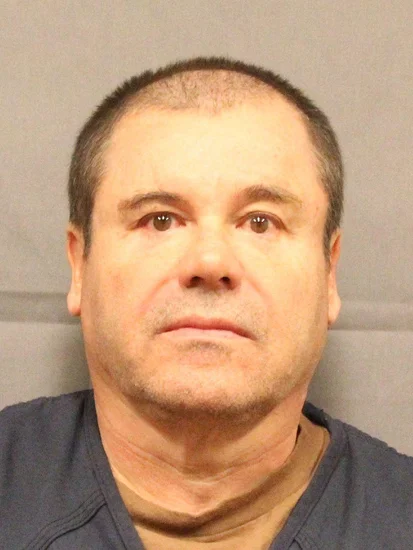
Mexican authorities successfully recaptured Joaquín Guzmán, the world’s most powerful drug trafficker, following his dramatic escape from maximum security prison. The arrest represented a major victory in the international war against organized crime.
Guzmán’s recapture required extensive coordination between Mexican and American law enforcement agencies. His subsequent extradition to the United States marked the end of his decades-long reign over the Sinaloa Cartel.
2021 – Police “Massacre” Kills Twenty-Three in Caracas, Venezuela

Venezuelan security forces conducted a deadly operation in La Vega, Caracas, that resulted in twenty-three civilian deaths. International observers condemned the incident as a police massacre, highlighting the country’s ongoing human rights crisis.
The operation sparked widespread protests and international condemnation of the Maduro government’s security policies. Human rights organizations documented evidence of extrajudicial killings and excessive force by Venezuelan police.
2023 – Bolsonaro Supporters Storm Brazilian Congress

Supporters of former Brazilian President Jair Bolsonaro stormed the Brazilian Congress, Supreme Court, and presidential palace in Brasília. The unprecedented attack on democratic institutions occurred weeks after Bolsonaro’s election defeat to Luiz Inácio Lula da Silva.
The violent assault drew immediate comparisons to the January 6, 2021 Capitol attack in Washington, D.C. Brazilian authorities arrested hundreds of participants and launched investigations into the planning and financing of the insurrection.
Military and Naval History on January 8
1940 – Britain Introduces Food Rationing During World War II
The British government implemented comprehensive food rationing to ensure equitable distribution of scarce resources during wartime. Citizens received ration books that strictly controlled their access to essential items like meat, dairy, and sugar.
The rationing system would persist throughout the war and extend into the post-war period. This unprecedented civilian mobilization demonstrated Britain’s commitment to total war and helped maintain public morale during the darkest hours.
1945 – Philippine Commonwealth Forces Attack Japanese Invaders in Northern Luzon
Philippine Commonwealth Army units launched a major offensive against Japanese Imperial forces in Ilocos Sur province. The coordinated assault marked a significant escalation in Filipino resistance efforts during the final months of World War II.
Local Filipino forces demonstrated remarkable courage and tactical skill against well-entrenched Japanese defenders. Their successful operations helped pave the way for the eventual liberation of the northern Philippines.
1972 – Pakistan’s Bhutto Releases Bengali Leader Sheikh Mujibur Rahman
Pakistani President Zulfikar Ali Bhutto yielded to international pressure and released Sheikh Mujibur Rahman from prison. The Bengali leader had been imprisoned after declaring Bangladesh’s independence from Pakistan.
Rahman’s release marked a crucial step toward resolving the humanitarian crisis created by the 1971 Bangladesh Liberation War. His freedom allowed him to return to Bangladesh and assume leadership of the newly independent nation.
1977 – Three Bombs Explode in Moscow, Killing Seven

Three coordinated bomb explosions rocked Moscow within thirty-seven minutes, killing seven people and shocking the Soviet Union. Authorities attributed the attacks to an Armenian separatist group seeking independence from Soviet rule.
The bombings represented one of the most serious terrorist attacks on Soviet soil during the Cold War era. The incident highlighted growing ethnic tensions within the supposedly unified Soviet state.
2005 – USS San Francisco Collides with Undersea Mountain Near Guam
The nuclear submarine USS San Francisco struck an uncharted undersea mountain at full speed while conducting operations south of Guam. The collision killed one crew member and severely damaged the submarine’s forward sections.
Despite catastrophic damage, the crew successfully brought the submarine to the surface and limped back to port. The incident prompted major changes in submarine navigation procedures and underwater mapping protocols.
Science and Discovery Milestones on January 8
1973 – Soviet Space Mission Luna 21 Launched
The Soviet Union launched Luna 21, carrying the Lunokhod 2 rover to the Moon’s surface. This ambitious mission represented the pinnacle of Soviet lunar exploration capabilities during the Space Race era.
Lunokhod 2 would become the most successful lunar rover of its generation, operating for four months on the Moon’s surface. The mission provided invaluable scientific data about lunar geology and demonstrated advanced robotic exploration techniques.
1994 – Russian Cosmonaut Begins Record-Breaking Space Mission
Russian cosmonaut Valeri Polyakov departed Earth aboard Soyuz TM-18 for the Mir space station, beginning what would become the longest single spaceflight in human history. His mission aimed to study the long-term effects of weightlessness on human physiology.
Polyakov would remain in space for 437 consecutive days, establishing a record that still stands today. His extraordinary endurance provided crucial data for future long-duration missions to Mars and beyond.
1977 – French Farmer Reports Meticulously Documented UFO Sighting
A farmer in Trans-en-Provence, France, reported observing an unidentified flying object that left physical traces on his property. Investigators described the incident as “perhaps the most completely and carefully documented sighting of all time.”
French authorities conducted extensive scientific analysis of the landing site and collected physical evidence. The case remains one of the most thoroughly investigated UFO incidents in European history.
Cultural and Arts Events on January 8
2004 – RMS Queen Mary 2 Christened by Queen Elizabeth II
Queen Elizabeth II christened the RMS Queen Mary 2, then the largest ocean liner ever constructed. The magnificent vessel represented the pinnacle of luxury passenger ship design and engineering achievement.
The christening ceremony honored both maritime tradition and the original Queen Mary’s legacy. The new ship would revitalize transatlantic passenger service and establish new standards for luxury cruise travel.
1925 – American Artist George Bellows Dies
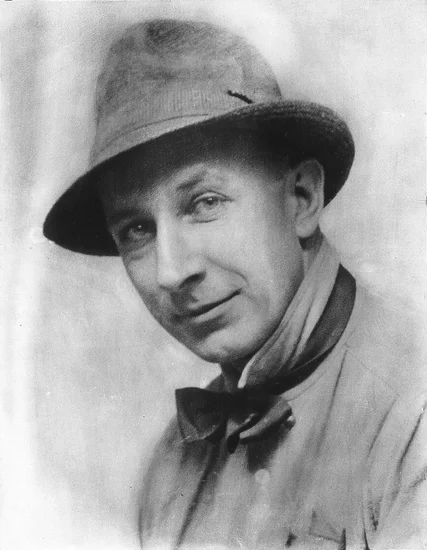
George Bellows, one of America’s most celebrated painters, passed away at the height of his artistic career. His dynamic urban scenes and boxing paintings captured the raw energy of early twentieth-century American life.
Bellows’ realistic style and social commentary influenced a generation of American artists. His works remain among the most recognizable examples of American realism in major museums worldwide.
1941 – Scout Movement Founder Robert Baden-Powell Dies
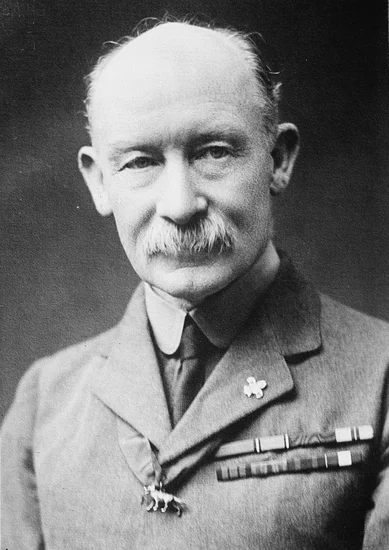
Robert Baden-Powell, founder of the worldwide Scout movement, died after creating one of history’s most successful youth organizations. His innovative approach to character development and outdoor education transformed childhood experiences globally.
Baden-Powell’s scouting philosophy emphasized practical skills, moral development, and international friendship. His movement would eventually include millions of young people across every continent.
1996 – French President François Mitterrand Dies
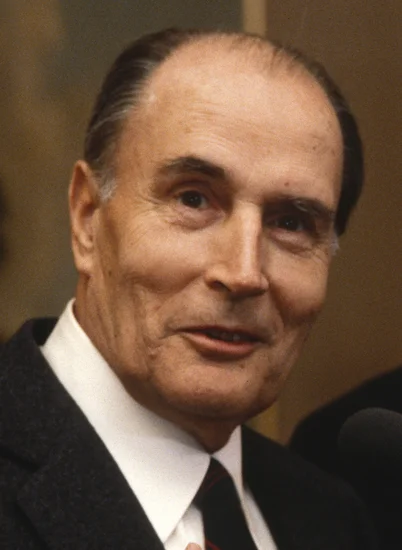
François Mitterrand, France’s longest-serving president, passed away after fourteen years in office. His presidency witnessed the end of the Cold War and France’s deeper integration into European structures.
Mitterrand’s political legacy included major social reforms and France’s commitment to European unity. His death marked the end of an era in French and European politics.
Religious and Social Events on January 8
1912 – African National Congress Founded
The South African Native National Congress was established, later becoming the African National Congress (ANC). This historic organization would lead the decades-long struggle against apartheid and racial oppression in South Africa.
The ANC’s founding brought together diverse African leaders committed to achieving civil rights and political equality. The organization would eventually produce leaders like Nelson Mandela and become South Africa’s ruling party.
1933 – Anarchist Insurrection Erupts in Barcelona
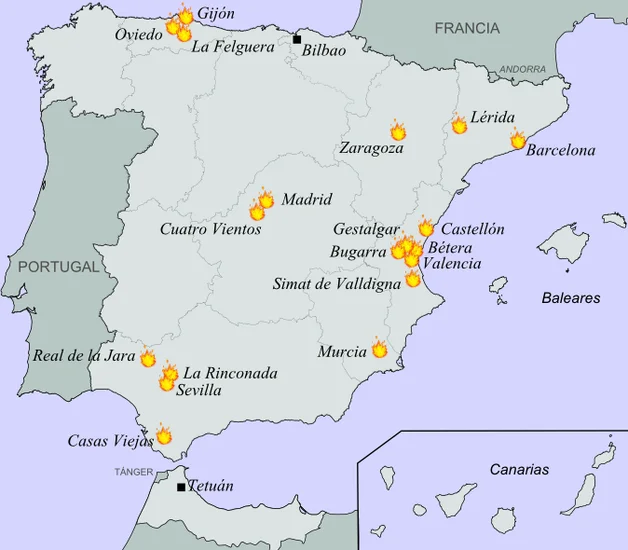
An anarchist uprising began in Barcelona, Spain, reflecting the intense political tensions that would eventually lead to the Spanish Civil War. The insurrection demonstrated the growing polarization of Spanish society during the turbulent 1930s.
The failed uprising revealed the deep ideological divisions within Spanish society and foreshadowed the violent conflicts ahead. These events contributed to the political instability that would engulf Spain throughout the decade.
1936 – Iran’s Reza Shah Bans Islamic Veils in Public
Iranian leader Reza Shah issued the Kashf-e hijab decree, immediately banning the wearing of Islamic veils in public spaces. This controversial modernization effort aimed to westernize Iranian society and reduce religious influence.
The decree sparked widespread resistance among traditional and religious communities throughout Iran. The forced unveiling policy remained deeply controversial and contributed to long-term tensions between secular and religious forces.
1956 – Five American Missionaries Killed in Ecuador
Five American missionaries were killed by the Waorani people of Ecuador shortly after making first contact as part of Operation Auca. The tragic incident highlighted the dangers and cultural complexities of missionary work in isolated communities.
The missionaries’ deaths initially shocked the evangelical community but ultimately led to successful peaceful contact with the Waorani. Their sacrifice became an inspiring story of faith and reconciliation in missionary circles.
Business and Economic Events on January 8
1920 – Steel Strike of 1919 Ends in Union Failure
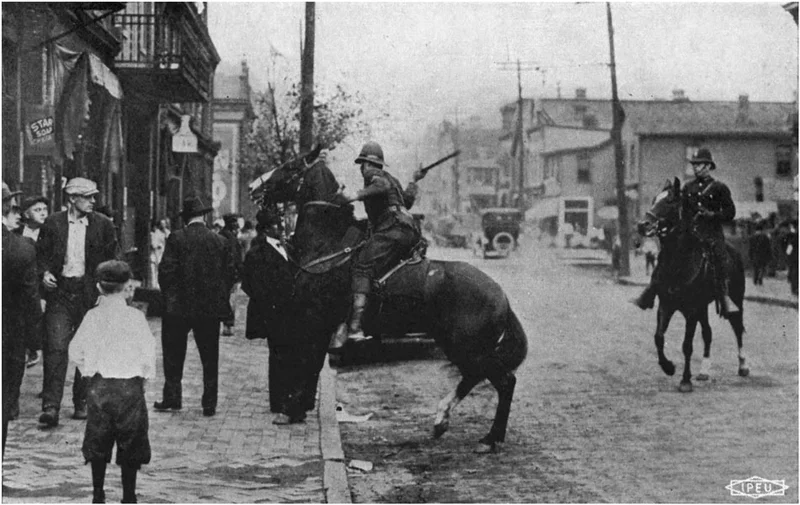
The massive steel strike of 1919 officially ended in complete failure for the Amalgamated Association of Iron, Steel and Tin Workers. The defeated strike represented a significant setback for organized labor in America’s industrial heartland.
The strike’s failure demonstrated the continued power of corporate America to resist unionization efforts. This defeat would influence labor organizing strategies and industrial relations for decades to come.
1982 – AT&T Agrees to Break Up Bell System
American Telephone and Telegraph Company agreed to divest itself of twenty-two regional subsidiaries, ending the Bell System’s monopoly on American telecommunications. This landmark antitrust settlement transformed the communications industry forever.
The breakup created competition in long-distance telephone service and paved the way for telecommunications innovation. The decision would accelerate the development of modern communication technologies and services.
2002 – Nobel Prize-Winning Economist Joseph Schumpeter Dies
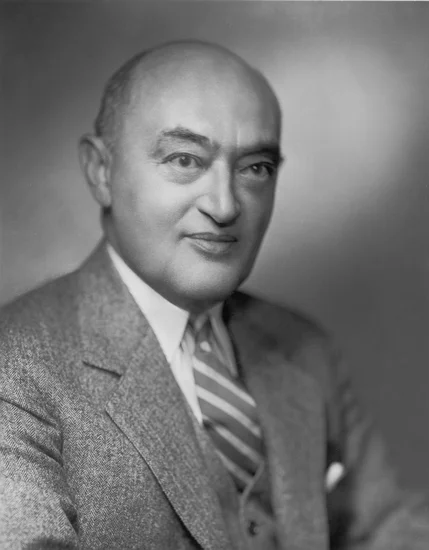
Joseph Schumpeter, the influential Austrian-American economist, passed away after revolutionizing economic theory with his concept of “creative destruction.” His work fundamentally changed how economists understood innovation and entrepreneurship.
Schumpeter’s theories explained how capitalism drives progress through continuous innovation and market disruption. His insights remain highly relevant to understanding modern technological and economic transformation.
Transportation and Infrastructure on January 8
1989 – Kegworth Air Disaster Kills 47

British Midland Flight 92, a Boeing 737-400, crashed into the M1 motorway near Kegworth, England, killing forty-seven of the 126 people aboard. The disaster occurred when pilots shut down the wrong engine after experiencing mechanical problems.
The investigation revealed critical flaws in crew training and aircraft design that contributed to the tragedy. The accident led to significant improvements in pilot training procedures and aircraft warning systems.
1996 – Cargo Aircraft Crashes into Kinshasa Market
An Antonov An-32 cargo aircraft crashed into a crowded market in Kinshasa, Zaire, killing up to 223 people on the ground. The disaster highlighted the poor safety standards plaguing African aviation during the 1990s.
The crash remains one of the deadliest aviation disasters in African history. The tragedy prompted international efforts to improve aviation safety standards and oversight in developing nations.
2003 – Turkish Airlines Flight 634 Crashes Near Diyarbakır

Turkish Airlines Flight 634 crashed during approach to Diyarbakır Airport, killing seventy of the seventy-five passengers and crew aboard. The accident occurred in poor weather conditions during a domestic flight within Turkey.
The crash investigation revealed the challenges of operating in mountainous terrain and adverse weather conditions. The disaster led to improved approach procedures and safety measures at Turkish airports.
2020 – Ukraine International Airlines Flight 752 Shot Down in Tehran

Ukraine International Airlines Flight 752 was shot down by an Iranian surface-to-air missile immediately after takeoff from Tehran, killing all 176 people aboard. The tragic incident occurred during heightened tensions between Iran and the United States.
Iran initially denied responsibility but later admitted to accidentally shooting down the civilian aircraft. The incident strained Iran’s international relations and highlighted the dangers of military escalation near civilian flight paths.
Sports and Recreation on January 8
2010 – Togo National Football Team Attacked En Route to Africa Cup of Nations
Gunmen from the Front for the Liberation of the Enclave of Cabinda attacked the Togo national football team’s bus, killing three people and injuring nine others. The assault occurred as the team traveled to the 2010 Africa Cup of Nations tournament.
The attack shocked the international football community and raised serious questions about tournament security. Togo withdrew from the competition, and the incident highlighted the political tensions surrounding the tournament in Angola.
1961 – Baseball Hall of Famer Schoolboy Rowe Dies
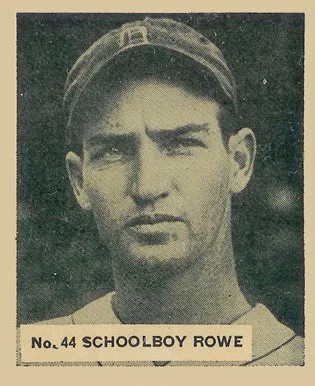
Lynwood “Schoolboy” Rowe, the legendary Detroit Tigers pitcher, passed away after a distinguished baseball career. His outstanding pitching helped lead the Tigers to American League pennants during the 1930s and 1940s.
Rowe’s colorful personality and exceptional talent made him one of baseball’s most beloved figures. His death marked the passing of an era in American League baseball history.
1994 – Baseball Pitcher Harvey Haddix Dies

Harvey Haddix, famous for pitching twelve perfect innings in a single game, died after a remarkable baseball career. His legendary performance on May 26, 1959, remains one of the most extraordinary pitching achievements in baseball history.
Despite losing his perfect game in the thirteenth inning, Haddix’s performance is still considered one of the greatest pitching displays ever. His death was mourned throughout the baseball community.
Notable Births on January 8
1942 – Stephen Hawking Born
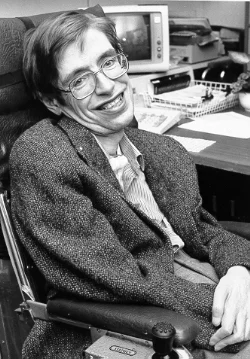
Stephen Hawking entered the world in Oxford, England, beginning a life that would revolutionize theoretical physics and cosmology. His early fascination with mathematics and science set the stage for groundbreaking discoveries about black holes and the universe.
Despite being diagnosed with ALS at age twenty-one, Hawking overcame tremendous physical challenges to become one of history’s most influential scientists. His work on black hole radiation and popular science writing made complex physics accessible to millions worldwide.
1935 – Elvis Presley Born
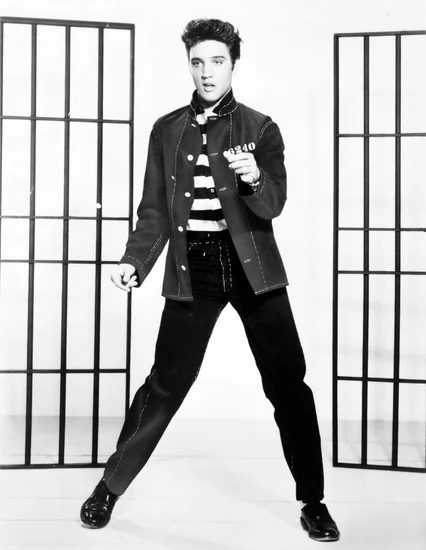
Elvis Aaron Presley was born in Tupelo, Mississippi, destined to become the undisputed “King of Rock and Roll.” His humble beginnings in the American South would contrast sharply with his eventual global superstardom.
Presley’s revolutionary musical style would transform popular culture and establish rock and roll as a dominant artistic force. His influence on music, fashion, and popular culture continues to resonate decades after his death.
1947 – David Bowie Born

David Robert Jones was born in London, England, later adopting the stage name David Bowie and becoming one of music’s most innovative artists. His early creative instincts and theatrical nature would define his revolutionary approach to popular music.
Bowie’s constant reinvention and boundary-pushing artistry influenced countless musicians and artists. His impact on music, fashion, and gender expression helped shape modern popular culture in profound ways.
1902 – Carl Rogers Born
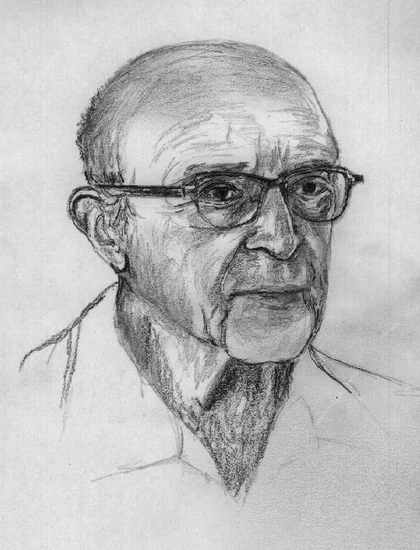
Carl Rogers was born in Oak Park, Illinois, beginning a life that would transform modern psychology and psychotherapy. His early interest in human behavior and personal development laid the foundation for revolutionary therapeutic approaches.
Rogers developed person-centered therapy, emphasizing the client’s inherent capacity for growth and self-actualization. His humanistic approach to psychology influenced counseling practices and educational methods worldwide.
1937 – Shirley Bassey Born
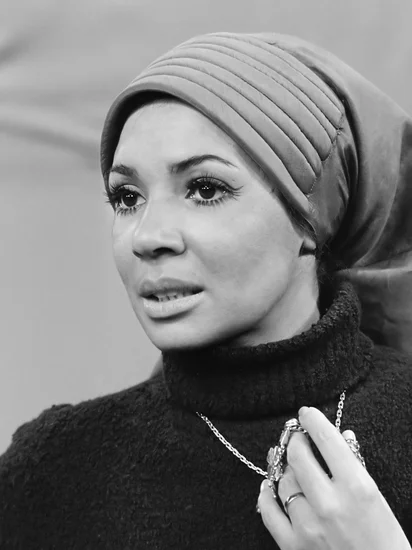
Shirley Bassey was born in Cardiff, Wales, destined to become one of the most powerful and distinctive voices in popular music. Her early musical talent and dramatic vocal style would eventually make her an international singing sensation.
Bassey’s career spanned decades and included iconic performances of James Bond theme songs. Her powerful voice and commanding stage presence established her as one of Britain’s greatest entertainers.
1942 – Junichirō Koizumi Born
Junichirō Koizumi was born in Yokosuka, Japan, beginning a political career that would lead to his becoming one of Japan’s most influential prime ministers. His early political involvement and reform-minded approach would shape Japanese politics for decades.
Koizumi’s charismatic leadership and structural reforms transformed Japanese politics during the early 2000s. His presidency marked a period of significant economic and social change in modern Japan.
1958 – Betsy DeVos Born
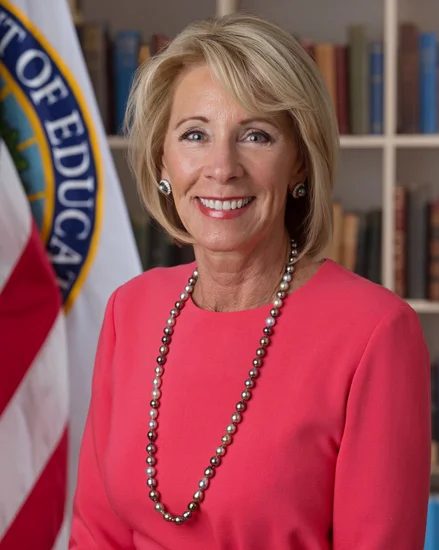
Betsy DeVos was born in Holland, Michigan, beginning a life dedicated to education reform and conservative politics. Her wealthy family background and strong religious convictions would influence her approach to educational policy.
DeVos became a prominent advocate for school choice and educational privatization. Her later appointment as Secretary of Education would make her one of the most controversial figures in American education policy.
Notable Deaths on January 8
1976 – Zhou Enlai Dies
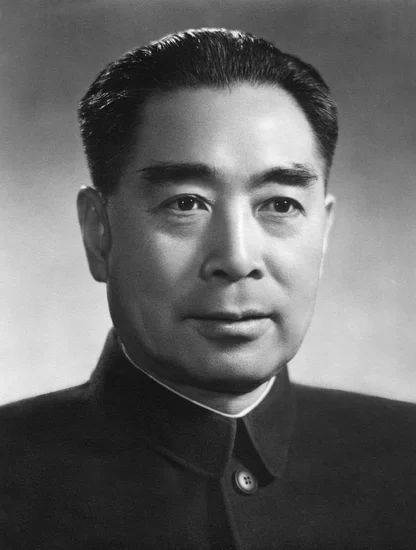
Zhou Enlai, China’s first Premier and one of the most respected leaders of the People’s Republic, passed away after decades of distinguished service. His diplomatic skills and moderate approach helped guide China through its most turbulent periods.
Zhou’s death marked the end of an era in Chinese politics and left a significant void in the country’s leadership. His pragmatic approach to governance and international relations influenced China’s development for generations.
1990 – Terry-Thomas Dies
Terry-Thomas, the beloved British comedy actor known for his distinctive gap-toothed smile and upper-class characters, passed away after a distinguished entertainment career. His memorable film performances delighted audiences worldwide for decades.
Terry-Thomas’s unique comedic style and impeccable timing made him one of Britain’s most recognizable entertainers. His death marked the passing of a golden age of British comedy cinema.
1998 – Michael Tippett Dies
Michael Tippett, one of Britain’s most important twentieth-century composers, passed away after creating a remarkable body of classical music. His innovative compositions and humanitarian themes established him as a major figure in modern classical music.
Tippett’s works often addressed social justice and human rights issues, reflecting his deep moral convictions. His death was mourned throughout the classical music community and beyond.
2002 – Dave Thomas Dies
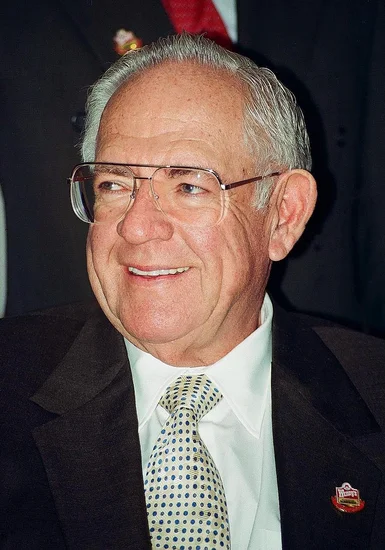
Dave Thomas, founder of the Wendy’s fast-food chain and beloved television spokesman, passed away after building one of America’s most successful restaurant empires. His entrepreneurial spirit and folksy advertising approach made him a household name.
Thomas’s rags-to-riches story and commitment to adoption advocacy inspired millions of Americans. His death marked the end of an era in American business and advertising.
2007 – Yvonne De Carlo Dies

Yvonne De Carlo, the Canadian-American actress best known for playing Lily Munster on “The Munsters,” passed away after a distinguished entertainment career. Her exotic beauty and dramatic talent made her a Hollywood star during the 1940s and 1950s.
De Carlo’s versatility as an actress allowed her to excel in both dramatic roles and comedy. Her death was mourned by fans who remembered her contributions to both film and television.
2020 – Buck Henry Dies
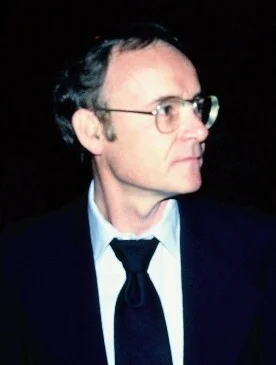
Buck Henry, the influential American screenwriter, actor, and director, passed away after helping create some of television and film’s most memorable comedies. His wit and creative genius shaped American humor for decades.
Henry’s work on “Get Smart,” “Saturday Night Live,” and “The Graduate” established him as one of entertainment’s most versatile talents. His death marked the passing of a comedy legend whose influence continues today.
Holidays and Observances on January 8
Babinden in Belarus and Russia
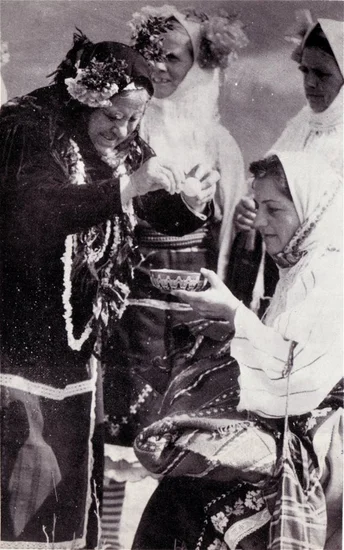
Babinden is celebrated in Belarus and Russia as a traditional holiday honoring midwives and celebrating childbirth. The observance reflects ancient Slavic customs that recognize the important role of midwives in community life.
Traditional celebrations include special meals and rituals that honor women who assist in childbirth. The holiday maintains connections to pre-Christian traditions while adapting to modern cultural contexts.
Commonwealth Day in Northern Mariana Islands
The Northern Mariana Islands observes Commonwealth Day to commemorate its unique political relationship with the United States. The holiday celebrates the establishment of the Commonwealth of the Northern Mariana Islands in political union with America.
The observance includes cultural events and ceremonies that highlight the islands’ distinctive status and heritage. Commonwealth Day reinforces the islands’ identity while honoring their connection to the United States.
International Typing Day

International Typing Day celebrates the importance of typing skills in the modern digital world. The observance recognizes how keyboard proficiency has become essential for communication, education, and professional success.
The holiday encourages people to improve their typing skills and acknowledges the evolution from typewriters to modern computer keyboards. Educational institutions and businesses often use this day to promote digital literacy programs.
